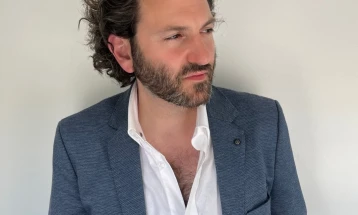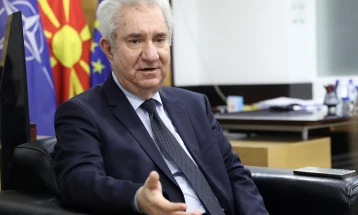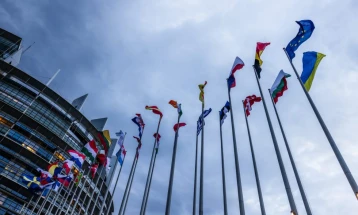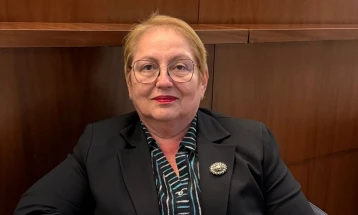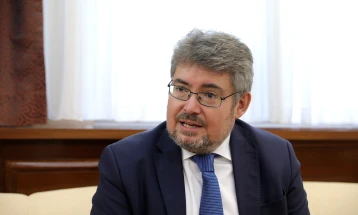West fuels ‘brutal Putinism’ in Bulgaria over pressure to lift Skopje veto: Euractiv
- Post By Ivan Kolekevski
- 10:36, 14 June, 2022
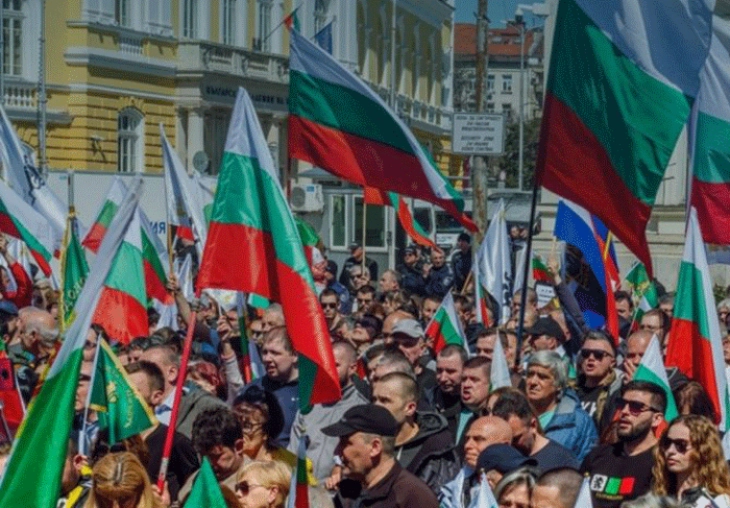
Brussels, 14 June 2022 (Euractiv/MIA) - Bulgaria is threatened by a strong anti-Western wave amid Russian propaganda and the war in Ukraine and lifting the veto on North Macedonia could lead to “brutal Putinism” at home, while maintaining it is seen as playing into Russia’s hands by Skopje.
EURACTIV asked Bulgarian political analysts about the political price of lifting the country’s veto on North Macedonia starting EU accession negotiations, in the context of a political crisis in which one of the parties in the four-way coalition left due to disagreements over the Skopje issue.
Bulgaria is under Western pressure to lift the veto but considers that Skopje has not delivered on the conditions to do so.
“If Skopje does not make concessions and Bulgaria lifts its veto, it will inevitably strengthen anti-European sentiment. Bulgarians will immediately understand that the government is doing it under the dictate of our Western partners. The Vazrazhdane (Revival) party will benefit from this, no doubt,” Dimitar Ganev from the sociological agency “Trend” told EURACTIV.
Vazrazhdane is an extremist force led by Kostadin Kostadinov, which has built on anti-vaxxer and pro-Russia sentiments. In the current parliament, the force has 13 MPs of a total of 240.
Political scientist Parvan Simeonov of the Gallup International Balkan agency doubled down on Ganev’s forecast. He said that nearly 70% of Bulgarians are against lifting the veto on Skopje, and if that happens, the West will obtain “brutal Putinism” in Bulgaria.
Political analysts do not rule out the possibility of Vazrazhdane being the second political force after former Prime Minister Boyko Borissov’s GERB party and becoming an unavoidable factor in Bulgarian politics if there is a new election. This will happen if the current government, led by pro-European Prime Minister Kiril Petkov, falls from power.
Even if Vazrazhdane is isolated even in the next parliament, this force could continue to grow on the wave of the anti-system narrative and benefit from Russian propaganda on social media networks. Vazrazhdane also calls for Bulgaria’s withdrawal from NATO and renegotiating the country’s EU membership.
A recent GLOBSEC survey showed that many more Bulgarians than other Eastern European EU countries would support leaving NATO. The data show that 38% now oppose NATO membership, while 40% of Bulgarians support it.
Nevertheless, both Ganev and Simeonov said that Vazrazhdane does not pose a direct threat to Bulgaria’s EU membership for the time being.
Surveys show that over 60% of Bulgarians express a positive or somewhat positive attitude towards EU membership. According to Ganev, currently, there is no threat to Bulgaria’s EU membership.
“Bulgaria’s next government will be formed on the basis of the country’s geopolitical orientation – East versus West,” Ganev commented. The current Bulgarian government was elected with the promise of fighting corruption and judicial reform, but the current hot topic has changed to Russia.
“For Bulgarians, the EU is a rational choice, while the positive attitude towards Russia is emotional due to history, cultural similarities and the fact that Russia is not Bulgaria’s neighbour. Bulgarians do not perceive it as an immediate threat,” commented Simeonov.
Both analysts acknowledged that Russian propaganda in the country has intensified in recent months. “Propaganda on social networks is an instrument of Russian foreign policy, and it makes no sense to weaken in recent years, but rather to intensify,” Ganev said.
Macedonian political analyst Slobodanka Jovanovska commented that it is still unclear whether the government will survive but said her compatriots “feel hostage to Bulgaria’s non-functioning as an EU member state, going from election to election and deciding nothing.”
Commenting on Russia’s influence in Bulgaria, she told EURACTIV that “not only in Macedonia but also in Bulgaria itself, there is a belief that structures close to Russia are using the bilateral issue with North Macedonia to obstruct EU policy and destabilise the region.”
Macedonian journalist Erol Rizaov added that the Bulgarian veto is even stronger after the war in Ukraine because Russian influence in Bulgaria has dramatically increased. “There is not a single so-called “Russophile” who does not fiercely defend the Bulgarian veto on the EU negotiations with North Macedonia,” Rizaov said.
Skopje is concerned that conceding to yet more demands from other countries sets a precedent. The government questions if they concede on these demands, they will be asked to make others in the future.
Stakeholders have called for negotiations to be opened as soon as possible with other matters addressed in the opening of chapters. Failure to do so could leave both Skopje, and Tirana, who’s fate is tied to its neighbour, open to influence from the east.
At the end of last week, the Bulgarian government was shaken after the leader of the populist party, ‘There is such a people’ Slavi Trifonov, announced that he was leaving the ruling coalition. His four ministers, including those of energy and foreign affairs, have also resigned. Kiril Petkov’s government also lost its parliamentary majority, leaving 109 deputies in the required 121.
On Monday, Trifonov’s party began to disintegrate, with six deputies announcing their departure over accusations that Trifonov may be linked to the mafia.
Without a majority, the chances of Petkov lifting the veto are slim. Another major partner in the ruling coalition is the Bulgarian Socialist Party, which also opposes concessions to North Macedonia.


